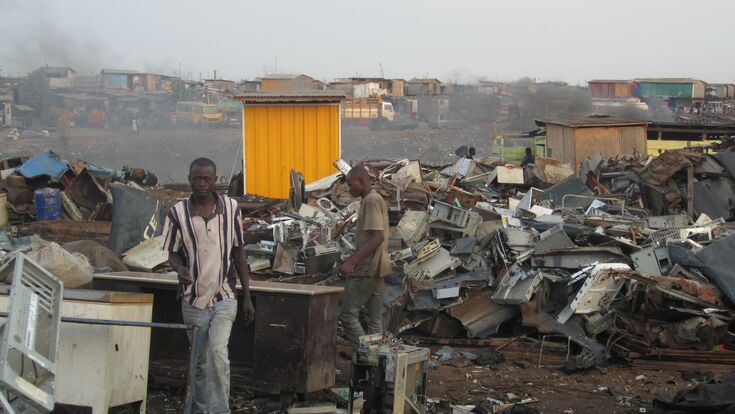Six major universities from five African countries have formed a consortium to bridge the gap between science, policy and actual solid waste management.
Africa's pace of urbanisation is the fastest in the world, with city populations expected to grow by 900 million to 1.33 billion in 2050. According to the United Nations Environment Programme, managing the waste produced in these swollen cities will present both challenges and opportunities.
UNEP projects income cities in Africa and Asia to double their municipal solid waste generation within the next 15 to 20 years, placing a major strain on the continent's poor infrastructure.
A seemingly daunting challenge and an acute health risk, the growing heaps of trash can actually provide a sustainable development opportunity, which African countries are increasingly embracing.
United Nations Environment Assembly
In May this year, countries will meet in Nairobi for the second United Nations Environment Assembly meeting (UNEA 2) - which UNEP described as the world's de facto ‘Parliament for the Environment’ - to discuss how safeguarding our environment can benefit human health, societies and economies.
The assembly will be one of the first major meetings since the adoption of the 2030 Agenda for Sustainable Development and the Paris Climate Agreement. The resolutions passed at UNEA-2 will set the stage for early action on implementing the 2030 Agenda, and drive the world towards a better, more just future.
According to UNEP, adopting sustainable waste management practices is not only vital to protecting human health, but can also bring multiple social and economic benefits, advancing the 2030 Agenda for Sustainable Development.
Consortium on Waste Management
Recognising these opportunities, this year six major universities from five African countries - Kenya, Egypt, Mauritius, Burkina Faso and Ethiopia have established the region's first University Consortium on Waste Management.
In the build up to the event UNEP talked with Professor David Mungai - deputy director of the Wangari Maathai Institute for Peace and Environmental Studies and member of the consortium representing the University of Nairobi in Kenya - about the role of the consortium in strengthening the ability of African countries to create appropriate solutions for solid waste management.
"The overall purpose of the Consortium is to build capacities of African countries to better manage solid waste, particularly in cities," explained Professor Mungai.
According to UNEP the Consortium will focus on training countries on various aspects of solid waste management, including the understanding of solid waste generation patterns in African societies.
"It will also look at best available technologies of dealing with solid waste management and governance, African institutions' capacity and how can they be more responsive to appropriate and efficient solid waste management services, creating awareness, creating partnerships so that the issue of waste management is given a holistic approach," continued the Professor.
Income Source
UNEP added that solid waste management activities - such as waste collection and segregation, and retrieving recyclable materials - are a major source of income for the poorest, most vulnerable groups.
Globally, there are thought to be15 to 20 million people working in the small-scale informal waste sector, often in precarious conditions, exposed to hazardous substances and with no access to health and safety precautions.
These people mine the mountains of waste for plastic bags, containers, knives, spoons, frying pans and electronic devices, which can be reused or recycled.
"We would like to look at solid waste as a resource. Quite often, we have dealt with solid waste as something that has to be taken to the dumpsite or to landfills, or at the very worst, left in the environment,” commented Professor Mungai.
“We would like to promote the conversion of solid waste into useful materials, energy recovery for instance and recycling of certain materials. This can be very important for Africa because it has the potential to create jobs particularly among the young people and women in our African societies," he added.
In some cases UNEP said that waste recycling could yield a monthly income of between $130 and $800 per person per month. In a region where over 40 per cent of people still live on less than $2 a day, that is a significant amount.
Building Bridges
UNEP explained that the Consortium will also play a critical role in bridging the gap between science and policy. It will support African policymakers to develop evidence-based policies on waste management and governance.
It is also expected to help to address the gap between waste management policy and legislation and actual waste management practices in Africa, which is currently widening due to perennial capacity constraints and lack of waste management facilities.
"We are talking about policymakers in national governments. Involving them in the research we do to address real problems that are faced in different parts of each of the member countries of the consortium will help provide appropriate solutions to the African situation. There should be no gap between research and policy to tackle the issue of waste management," commented Professor Mungai.


